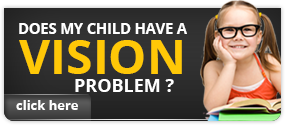Vision Therapy Success Stories
Vision Therapy Success - Josiah Vision Therapy Success - Gregory
“We began to see a difference in Russell’s attitude toward reading within 1 month of beginning vision therapy twice per week. Reading had always been a major chore for Russell—he would do the reading required to complete his schoolwork, but never read for pleasure. He would look at magazines that had pictures, but would not read the content.
After approximately one month of treatment, he became excited about books. He actually began asking to visit the library and began going to bed with books. I have had to ask him to turn out the lights and finish reading the next day. Ritalin use has also been reduced since Therapy commenced.” 10 year old
“Alejandro has had 32 vision therapy sessions. Our lives have begun to change dramatically as a result of the therapy. Here are some of the changes we are experiencing.”
“Alejandro is getting 80s and 90s on his tests. At the beginning of the academic year, he was getting 30s and 40s.” He is enjoying reading, in the past, reading was hard work. His self esteem is much healthier and he’s gaining confidence about his capacity to do well academically. In general, he is a happier kid,”
“As him mother, I’m also enjoying the fruit of the vision therapy. Doing homework is not a challenging and impossible task as it used to be. Thank you Dr. Kotlicky and his team of capable therapists for all their help in getting Alejandro to reach his full potential.” 10 year old
“We always knew that Cole was a bright child. Most things came easily to him, that is except reading. His teachers always stated he was a smart kid, a bright boy, but why was reading so hard? He hated it. At 5 years old he told us he hated reading. Who hates reading? I couldn’t believe it. Listening to him read was almost painful, so laboriously slow was he that I almost hated to make him do it. We thought making him read for 20 minutes every day would help. It didn’t. We had to read every other paragraph to help him get through a book. He always lost his place, changed words, added suffixes or prefixes that weren’t there. And he never had any idea of what he read.”
“We stumbled on vision therapy by accident. A friend whose son had been through a battery of educational testing at the request of his teacher and school happened to have his eyes tested for glasses and was lucky enough to do so at VLCA. Turned out that although he had ‘perfect vision’, he had deficient visual skills that needing training. He began vision therapy. Trying to find an explanation for my own son’s problem I made an appointment immediately.”
“After the first 4-6 weeks of therapy we noticed how much more quickly Cole was reading. The reading was less stunted and more fluent. By hid 8th week Cole was reading books on his own and able to tell me what he’d read. Every time I think about what life was like before vision therapy for Cole it brings tears to my eyes. Even 3 months after completing therapy Cole is reading so quickly that I have to tell him to slow down. It has been an amazing process. I can’t thank Dr. Kotlicky enough." 8 year old
Alexandra started 3rd grade reading on 2nd grade reading level K. Although she had an IEP at school, and was in tutoring, she ended 3rd grade on the same reading level. There had been no progress despite everyone’s efforts.
She passed the vision screening at school, but her tutor suspected a vision problem. I discussed this possibility with the school because the reading specialists told me that they couldn’t understand why she passed tests with scores above 90% when given to her orally, but failed the same tests when she had to read them herself. They struggled to keep her on task. The school psychiatrist said my daughter had anxiety issues and/or ADD/ADHD, and should be further evaluated and would likely be put on medication.
When I had her tested by a developmental optometrist who diagnosed an underlying vision problem, the school said I was crazy, insane, and wasting my time. They tried to dissuade me from pursuing vision therapy to help my child.
My daughter’s reaction was “You mean somebody can fix me?” As a parent, it was heartbreaking to realize that my child felt like she was broken, or didn’t work right.
Alexandra started vision therapy at the end of 3rd grade and continued over the summer. She started 4th grade on the same 2nd grade reading level on which she had started 3rd grade. But within 7 months, she went up 2 ½ grade levels in reading: she was now reading on a middle 4th grade level. The school was so shocked by her progress that they tested her twice!
Alexandra is now a different child because of vision therapy. The school no longer sees any symptoms of anxiety, and they want to know more about what we did over the summer to account for the dramatic improvement in this child. One of the greatest pleasures of my life has been seeing the changes in my child. You can’t put a price on it. 9 year old
“My daughter has always struggled with reading. She had a hard time with comprehension but the schools felt she was “doing fine”! I knew she was smarter than her test scores reflected, particularly the CTBS and MSA. After asking for help numerous times and getting no where, I felt frustrated and angry. Much like my daughter was feeling. I heard about Dr. Kotlicky through a friend. As soon as I started to tell him about her school problems, he finally hear me – at this point, no one else had. When she was finished with the testing, he showed me what she saw when she was reading. I almost cried! The letters were jumping all over the place. No wonder she had a hard time comprehending. Anyway, what a relief to know I wasn’t wrong.”
“After just a few months of 2X week sessions, we started seeing improvement. Her MSA scores sere so much better. Dr. Kotlicky and vision therapy were a godsend. I was a bit skeptical at first but she improved so much. Now, after 1 year, she is doing so much better and has so much more confidence. I highly recommend vision therapy. Casey is now a more confident student and a happier child.” 13 year old
“Before Zachary started vision therapy he had problems with his reading and coping sentences from the chalk board in school. Homework would take an hour to an hour and a half. He was signed up to play tee-ball and had a lot of problems hitting and throwing the ball. Then he was diagnosed with Convergence Insufficiency. He has been working hard in vision therapy and at home to correct the problem. He has shown great improvement in his reading. He can now read anything he wants, chapter books, road signs. He is able to copy sentences from the board and get them correct the first time. Homework only takes a half an hour to 45 minutes, which is how long it should take, there is also less arguing about getting the work done. But the thing that amazes me the most is his ability to play softball now. He is able to hit the ball now and he can throw it better. Zachary also likes to hit golf balls, which he was not able to do very well before. I believe that life has become a whole lot easier for Zachary since he has been in vision therapy and I know he is a lot happier. Thank you to everyone who helped him!!” 8 year old
My son Robert had low self-esteem & didn't like school. He struggled to stay on grade level, had Cs & Ds in reading & writing & had to attend Saturday School to bring up his grades. He was bright, but refused to read any chapter books. That’s how he started 4th grade, but fortunately we found the root cause of his difficulties & he finished above grade level with As & Bs in reading and writing!
We were lucky that our eye doctor, Michael Kotlicky, O.D. was a developmental optometrist and diagnosed his Convergence Insufficiency. When we filled out the symptom checklist on the health history form, I was horrified to see the # of symptoms he checked, like headaches, fatigue, poor reading comprehension, blurred print & losing his place when reading. I had no idea since he wouldn’t even read a paragraph.
Robert started vision therapy in the spring, and over the summer he finished reading the 3rd and 4th Harry Potter books. This was a HUGE accomplishment for him, and he is now an avid reader who can pursue his many interests.
It has been exciting for us to see him advance in school. When he was moved into the highest reading group, he didn't think he could do it. His self esteem has soared as he’s seen that he CAN be in the same group with the "smart" kids.
Robert just completed his first year of high school with a 3.0 GPA. All his classes next year are honor’s level. He has made achievements that wouldn’t have been possible for him if his binocular vision problem had been missed. 9 year old
“Our son went from not enjoying to read, to reading several books in one week, and he now loves to read! We no longer have to remind him to read. He also seems more confident with school work. We recommend to any parents that are not sure about vision therapy to begin the therapy for their child as soon as possible. It will make a big difference for your child and will solve the problems instead of teaching you to cope with the problems like many doctors will suggest. Vision therapy has been absolutely wonderful!!” 7 year old







 Read Our Reviews
Read Our Reviews 









